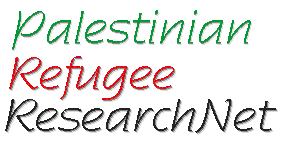A Stocktaking Conference on Palestinian Refugee Research
15h45-17h00
Monday, 8 December 1997Making Research Policy-Relevant This session dealt with the relationship between the academic community and the policy world. Speakers focused on the "two solitudes" characterizing this relationship. They noted that most often, the chasm between academic research and policy decisions is considered unbridgeable. Yet the discussions suggested imaginative ways for bridging this gap.
According to one speaker with experience in the policy world, a number of factors has given rise to the aforementioned situation, notably the reluctance among academics to "waste time in bureaucracy," but also government's tendency to rely on outside advice in an episodic, ad-hoc, and technical capacity, and sometimes only in the event of serious disagreements among various departments. However, the speaker highlighted a number of characteristics that enhance the policy relevance of academic research. These are:
- sharp focused readable analysis published in readily available media
- work discussing multiple scenarios and options
- writings that challenge current thinking
- timeliness
- broad perspective.
Finally, the speaker stressed the need to develop contacts inside the bureaucracy and avoid overly theoretical analysis, groupthink, conspiracy theories, and empirical errors.
Another participant outlined the significance of "Second Track" (T2) diplomacy as a possible means of connecting research and policy circles. The speaker suggested that the importance of research and T2 diplomacy is minimal in the absence of a strategic vision accompanied by a realistic political program. At the macro political level, he contended, political advisers and/or Ministers will only be influenced by research results if the issue is of significant importance or, alternatively,research shows that there is a clear risk of policy decisions being fundamentally and embarrasingly wrong. Research results, he added, must be linked to a communication strategy involving personal (or other) connections to the policy world. The speaker also emphasized the need for researchers to propose clear answers and viable options to the relevant decision-makers. Provided it is handled with discretion, T2 can assist the aforementioned linkage between policy and research by:
- contributing to awareness of decision-making processes and key needs;
- personalizing the input of researchers to decision-makers at both macro- and micro-levels;
- extending awareness of key issues among all parties; and,
- helping to coordinate and cross-fertilize necessary research.
Through these functions there is scope to reduce imbalances in the negotiating power and potential for friction between different parties. Finally, the speaker emphasized that T 2 diplomacy will only bear fruit in terms of the Palestinian refugee issue if it is institutionalized, if confidentiality and trust are upheld as guiding principles, if it is informal, if it operates among persons who have no authority to commit or represent others (though they have to carry weight in their own policy contexts), and finally, if it is undertaken in a strict sense of professional collegiality.
Commenting further on the T2 diplomacy, another participant suggested that we ought to distinguish between three kinds of T2 initiatives. One type is T2 initiated by decision-makers. These can be of two kinds: initiatives which are known and open, or initiatives which are closed and hence "deniable". Alternatively, there are other Track Two situations initiated by private individuals with no governmental affiliations--only when they feel that they are close to a breakthrough do the participants approach the government.
Another participant underlined that T 2 ought to be distinguished from back channel negotiations, the latter referring to secret official talks. This participant deemed T 2 preferable because it allows for cumulation and innovative approaches. He suggested that T 2 can either filter into the system or develop into a back channel. There was also agreement that T 2 was a new kind of process that does not depend on voting procedures and attempts to elucidate issues rather than resolve them. Participants expressed the opinion that the process involved in this kind of discussion could yield positive effects even though the dialogue may not be productive.
The session also included a brief discussion concerning the role of the media. Some voiced the opinion that the media may be used instrumentally by lower-level officials to influence the perceptions and decisions of high-ranking decision-makers. Others felt that the media may act as a facilitator in disseminating policy-relevant research. However, they warned that the research needed to fulfill certain conditions to lend itself to wider circulation and consumption. The analysis ought to relate to readers by narrating the stories of people instead of focusing on dry facts, it ought to tackle innovative and timely topics, and it should show potential utility for policy-makers.
The PRRN/IDRC compensation workshop was funded by IDRC and the Canadian International Development Agency thrrough the Expert and Advisory Services Fund. PRRN is a project of the Interuniversity Consortium for Arab Studies (Montréal).Last modified 08/12/97. Rex Brynen/info@prrn.org


